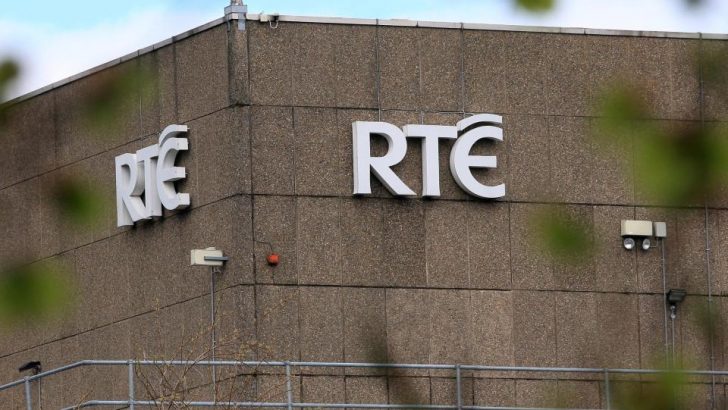Letter of the week
Holding RTÉ accountable for lack of fairness
Dear Editor,
The article highlighting the anti-Catholic bias at RTÉ brings to the forefront an issue that has been ignored for too long [The Irish Catholic – September 5, 2024]. The broadcaster’s recent programme, ‘Farmed Out’, presents yet another example of how Catholic institutions are unfairly portrayed. The documentary focused solely on children fostered from Catholic-run institutions, neglecting to mention that fostering was a practice common across religious denominations in Ireland, including the Church of Ireland.
This kind of selective reporting skews the historical record and fosters a misleading narrative. The negative portrayal of Catholic-run institutions without acknowledging the broader context paints a one-sided picture, fuelling anti-Catholic sentiment. The programme failed to clarify that State rules required that children be fostered by families of the same denomination, regardless of religious affiliation.
RTÉ’s role as Ireland’s public service broadcaster should come with a responsibility to ensure fair and balanced reporting, particularly when it comes to matters of faith and history. Catholics, who make up a significant portion of Ireland’s population, deserve respectful and accurate representation. The continued pattern of unfairly singling out the Catholic Church in negative contexts, while ignoring similar practices in other denominations, is unjust.
This bias not only distorts the public perception of the Church but also undermines the trust that Irish citizens—many of whom pay their licence fee—place in their national broadcaster. Greater accountability is needed within RTÉ to ensure that its platforms are not used to perpetuate anti-Catholic narratives. A more balanced and truthful approach is necessary if RTÉ is to fulfil its public service role responsibly.
Yours etc.,
Brian O’Sullivan
Swords, Dublin
Parental involvement in SPHE Curriculum
Dear Editor,
I wholeheartedly welcome your highlighting of the dangers posed by the Government’s SPHE curriculum, particularly its extreme ideological stance on gender [The Irish Catholic – September 12, 2024]. As parents, we must be vigilant and involved in our children’s education, especially when such important issues as gender identity are being taught in ways that contradict biology. The SPHE curriculum also includes teachings that do not put enough/any emphasis on the importance of love, marriage, and commitment.
Ms Carol Nolan’s comments underscore the deep concern many of us feel regarding the deliberate distortion of biological and sexual realities in schools. Children deserve an education rooted in truth, not one where they are encouraged to embrace an ideology that promotes confusion about basic realities such as male and female. Compassion for those struggling with gender dysphoria is essential, but it must be balanced with protecting the mental and emotional well-being of all children.
David Quinn’s observations about the hyper-individualism promoted in the new curriculum are also profoundly troubling. By teaching children that gender is fluid and relationships transient, the curriculum undermines the very foundations of stable, loving relationships that are vital for personal fulfilment and societal well-being.
Parents cannot stand idly by while this dangerous ideology takes root in our schools. We must demand that the Government and educational authorities return to a curriculum that reflects the values of family, commitment, and the inherent complementarity of male and female.
Our children deserve better.
Yours etc.,
Mary Flaherty
Mullingar, Co. Westmeath
Defending Catholic schools in the face of unfair criticism
Dear Editor,
As Senator Rónán Mullen and TD Michael Healy-Rae have pointed out, proposals from radical political parties to ‘remove the Church from schools’ are examples of bigotry and opportunism, using the tragic experiences of abuse victims as a political tool to push personal agendas. This is not only disrespectful to the survivors but also distracts from the real progress that has been made in child protection within faith-based schools.
What many seem to forget is that Catholic schools in Ireland remain among the top-performing educational institutions in the country. These schools are not only academically excellent, but they also offer a values-driven education that nurtures the whole person—spiritually, intellectually, and morally. This is precisely why so many parents, whether of strong or weak faith, continue to choose Catholic education for their children.
It’s essential to acknowledge the serious wrongs of the past, but it is equally important to recognise the incredible good that religious orders have done in shaping Ireland’s education system. To attempt to erase this contribution because of the actions of a few is shortsighted and unjust.
The effort to remove religious orders from schools appears less about protecting children and more about advancing a secular agenda that seeks to remove faith from public life entirely. This is something we must resist. Catholic schools continue to play an invaluable role in Irish society, offering an education that is holistic and deeply rooted in community values.
We should support these schools, not diminish their contribution.
Yours etc.,
Tom Murphy
Portlaoise, Co. Laois



